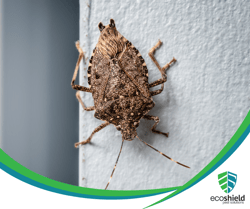In the world of pesky insects, few creatures have managed to capture the attention and curiosity of homeowners and gardeners, quite like the infamous stink bug. With their distinctive shield-shaped bodies and pungent odor, stink bugs have earned a reputation for being unwelcome guests in many households across the United States. However, when it comes to assessing the potential harm they pose to humans, the answers may not be as straightforward as one might assume. In this article, we aim to answer the question: can stink bugs hurt humans?
What are stink bugs?
Stink bugs, scientifically known as Pentatomidae, are a family of insects that belong to the order Hemiptera, commonly referred to as "true bugs." With a diverse range of species, stink bugs can be found in various habitats worldwide, including North America, Europe, Asia, and Africa. These insects are characterized by their shield-shaped bodies, which are usually brown or green in color, and their ability to produce a distinct odor when threatened or disturbed.
One of the most well-known species of stink bugs is the brown marmorated stink bug (Halyomorpha halys), native to East Asia but now prevalent in many parts of North America and Europe. Stink bugs typically have a set of piercing-sucking mouthparts that they use to feed on plants. Their diet primarily consists of plant fluids, including sap, fruits, and crops, making them notorious agricultural pests that can cause significant damage to agricultural industries.
During the warmer months, stink bugs spend their time outdoors, feeding and reproducing on plants. However, as temperatures drop, they seek shelter and warmth, often infiltrating homes and other buildings. This behavior leads to frequent encounters between humans and stink bugs, prompting concerns about their potential impact on human health and well-being.
Stink bugs possess a unique defense mechanism that sets them apart. When threatened or disturbed, stink bugs emit a foul-smelling odor from specialized glands on the underside of their bodies. This odor, often described as a mix of cilantro and skunk-like scent, serves as a deterrent to potential predators. Although the smell can be quite unpleasant, especially when large numbers of stink bugs are present, it is generally considered harmless and temporary, dissipating once the insects have moved on or been removed.
Understanding the nature and habits of stink bugs is crucial in evaluating the potential impact they may have on our lives as homeowners.
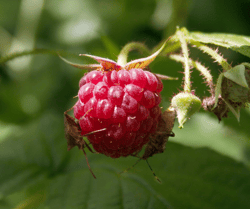 Their diet primarily consists of plant fluids, including sap, fruits, and crops.
Their diet primarily consists of plant fluids, including sap, fruits, and crops.
Can stink bugs bite or sting?
Stink bugs, despite their somewhat menacing appearance, do not bite or sting humans. Unlike other insects, such as mosquitoes or bees, stink bugs do not possess specialized mouthparts or stingers designed for piercing and biting. Their mouthparts are adapted for sucking plant fluids, allowing them to feed on fruits, crops, and sap.
While stink bugs may inadvertently come into contact with humans, their primary focus is feeding and reproducing rather than seeking out human blood or causing harm. They do not exhibit aggressive behavior towards humans and are generally considered to be harmless.
However, it's important to note that stink bugs have a defensive mechanism that can lead to some unintended consequences. When they feel threatened or disturbed, stink bugs release a pungent odor from glands located on their underside. This odor serves as a deterrent to potential predators, including birds and other insects. While this defensive odor is not harmful, it can be quite unpleasant and lingering, causing discomfort for those who come into contact with stink bugs in large numbers or accidentally crush them.
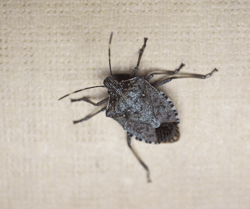 Stink bugs, despite their somewhat menacing appearance, do not bite or sting humans.
Stink bugs, despite their somewhat menacing appearance, do not bite or sting humans.
Are stink bugs harmful to my pets?
Stink bugs are generally not considered to be harmful to pets such as cats and dogs. They do not possess any toxins or venom that can cause significant harm to animals. In most cases, if a pet were to encounter a stink bug, the worst outcome would likely be a temporary annoyance or mild discomfort.
However, it's important to note that some pets may exhibit curiosity toward stink bugs and attempt to play with or eat them. In such cases, there is a possibility that the pet may experience mild digestive upset if they consume a large number of stink bugs. The chemicals produced by stink bugs as a defense mechanism could potentially cause gastrointestinal irritation.
To minimize any potential risks, it's advisable to prevent your pets from ingesting stink bugs. Keep an eye on your pets when they are in areas where stink bugs are present and discourage them from interacting with these insects. If you notice any signs of gastrointestinal distress or if your pet consumes a large number of stink bugs, it's best to consult your veterinarian for guidance.
As always, if you have any concerns about the well-being of your pets or notice any unusual symptoms, it is recommended to seek professional advice from a veterinarian who can provide tailored guidance based on your specific situation.
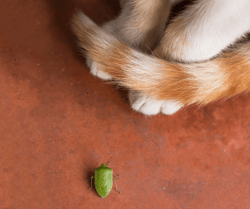 It's important to note that some pets may attempt to play with or eat stink bugs.
It's important to note that some pets may attempt to play with or eat stink bugs.
Can stink bugs damage my home or property?
Stink bugs can potentially cause some damage to your home or property, although it is typically minimal compared to the harm they can inflict on agricultural crops. Here are a few ways in which stink bugs may impact your property:
- Infiltration: Stink bugs are known to seek shelter in homes and buildings, especially during the cooler months. They can enter through small cracks, gaps, or open windows and doors. While their presence alone may be a nuisance, they generally do not cause structural damage or pose a direct threat to the integrity of your property. Nonetheless, they are considered to be an unwelcome sight in the home.
- Staining: When disturbed or crushed, stink bugs may release a yellowish or brownish liquid. This liquid can leave stains on surfaces such as walls, curtains, upholstery, or carpets. These stains can be difficult to remove, requiring thorough cleaning or professional assistance in some cases.
- Garden and plants: If you have a garden or plants around your property, stink bugs can pose a greater threat. They have piercing-sucking mouthparts that they use to feed on plant fluids. Large populations of stink bugs can cause damage to fruits, vegetables, and ornamental plants, resulting in blemishes, discoloration, or deformities.
While stink bugs can be a nuisance and may cause some minor damage, it's important to remember that they are not destructive pests like termites or carpenter ants. Taking preventative measures, such as sealing entry points, using screens on windows, and maintaining good garden practices, can help reduce the likelihood of stink bugs infiltrating your home or causing significant damage to your property.
If you notice a significant infestation or encounter difficulties in managing stink bugs on your property, you may consider consulting a professional pest control service for guidance and assistance in addressing the issue effectively.
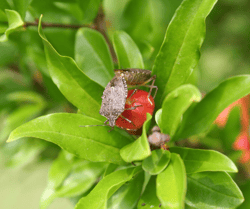 Large populations of stink bugs can cause damage to fruits, vegetables, and ornamental plants.
Large populations of stink bugs can cause damage to fruits, vegetables, and ornamental plants.
How do I prevent stink bugs in my home?
Yes! To prevent stink bugs from entering your home, you can take several preventive measures. Here are some effective strategies to keep stink bugs at bay:
- Seal entry points: Inspect your home for any cracks, gaps, or openings where stink bugs could enter. Seal these entry points using caulk or weatherstripping to create a barrier. Pay attention to areas around windows, doors, utility pipes, vents, and utility lines.
- Install screens: Use fine mesh screens on windows, doors, and vents to prevent stink bugs from entering your home while still allowing airflow. Ensure that the screens are in good condition and free from any holes or tears.
- Check window and door seals: Ensure that the seals around windows and doors are intact and in good condition. Replace worn-out weatherstripping or door sweeps to minimize potential entry points.
- Close off potential access points: Keep windows and doors closed as much as possible, especially during the times of the year when stink bugs are most active. This will reduce the likelihood of them finding their way indoors.
- Outdoor maintenance: Trim vegetation and shrubs near the exterior walls of your home, as stink bugs may use them as pathways to access your house. Additionally, remove debris or leaves from around the foundation and keep the perimeter of your home clean.
- Outdoor lighting: Consider using yellow or sodium vapor lights for outdoor lighting instead of white lights, as stink bugs are less attracted to these types of lighting.
- Vacuuming: If you spot stink bugs indoors, use a vacuum cleaner with a hose attachment to remove them. Dispose of the vacuum bag or empty the canister promptly to prevent any odors from spreading.
- Avoid squashing stink bugs: As previously mentioned, squashing stink bugs can release their odor, which can linger. Instead, use a tissue or paper towel to handle and dispose of them.
- TOP TIP - Contact a trusted pest professional: A reputable pest control company can help you prevent stink bugs from entering and infesting your home. Pest control professionals have the knowledge, expertise, and resources to implement effective preventive measures tailored to your specific situation.
By implementing these preventive measures, you can significantly reduce the chances of stink bugs entering your home. Remember to be vigilant, especially during the seasons when stink bugs are most active, typically in the fall as temperatures begin to cool.
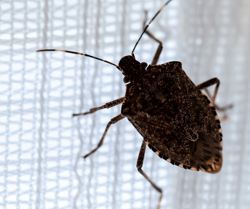 Stink bug perched on window curtain.
Stink bug perched on window curtain.
Can EcoShield Pest Solutions help prevent and/or remove stink bugs?
Yes! With our Shield Home Protection Plan, customers receive fully personalized year-round pest prevention AND removal. We achieve pest-free homes and yards through comprehensive service offerings such as regular inspections, professional-grade treatments, and pest life cycle disruption to inhibit pests’ ability to reach adulthood. In addition to stink bugs, EcoShield can help prevent and treat infestations of spiders, cockroaches, centipedes, millipedes, stinging insects, earwigs, silverfish, rodents, and so much more. Give us a call or fill out the form on this page today to get started!
